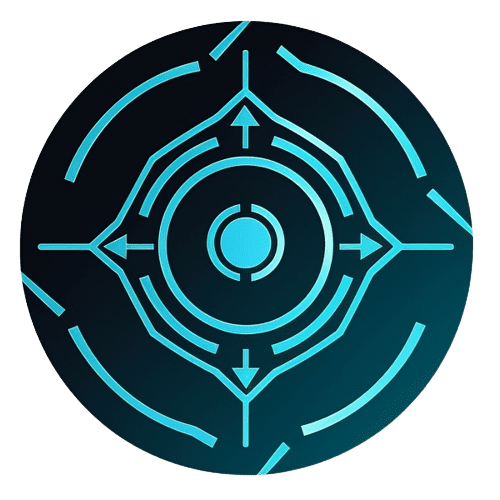Last Updated on July 28, 2023 by Said Al Azri
Introduction
The booming era of Information Technology
The Information Technology (IT) industry is currently experiencing a remarkable surge, making it an opportune time to consider a career in this field. With advancements in technology shaping every aspect of our lives, IT professionals are in high demand across diverse industries.
Why pursuing a career in IT is a wise choice?
Embarking on a career in IT offers numerous advantages. Not only is it a rapidly evolving industry, but it also promises a wide range of job opportunities and exceptional growth potential. Additionally, IT professionals enjoy the satisfaction of contributing to groundbreaking innovations that shape the future.
Understanding the IT landscape
Overview of the various domains in IT
The IT landscape encompasses numerous specialized domains, each requiring unique skills and expertise. These domains include software development, data analytics, cybersecurity, network administration, cloud computing, artificial intelligence, and more.
Exploring the current and future trends in IT
Keeping abreast of current and future trends in the IT industry is essential for success. With the rapid advancements in artificial intelligence, blockchain technology, internet of things (IoT), and augmented reality, IT professionals must stay ahead of the curve to remain competitive in their careers.
Paving your path towards an IT career
Identifying your passion and interests
One of the first steps towards building a successful IT career is identifying your passion and interests within the field. Determine which domain excites you the most, aligns with your natural inclinations, and sparks curiosity. This will sustain your motivation and drive throughout your career journey.
Evaluating your skills and strengths
Evaluate your existing skills and strengths to identify areas of expertise that can be further developed. Recognize your natural talents and determine how they can be effectively applied within the IT realm. This self-assessment will enable you to make informed decisions about your career path.
Choosing the right IT specialization
Once you have identified your passions, interests, and strengths, choose an IT specialization that aligns with them. Explore different domains, research the job market, and consider the growth potential and future prospects of each. Selecting a specialization that resonates with you will ensure long-term career satisfaction.
Building a strong foundation
Pursuing formal education in IT
Formal education in IT provides a solid foundation for a successful career. Consider pursuing a degree program or certification courses in your chosen specialization. This structured learning enhances your theoretical knowledge, critical thinking abilities, and problem-solving skills.
Gaining practical experience through internships and projects
Complement formal education with practical experience gained through internships and real-life projects. These opportunities offer valuable insights, the chance to work on live assignments, and exposure to real-world IT challenges. Practical experience helps build confidence and hones your skills.
Leveraging online learning platforms
In addition to formal education and practical experience, leverage the vast array of online learning platforms available. These platforms offer courses, tutorials, and resources to continuously expand your knowledge. Take advantage of online communities to connect with fellow professionals and share information and insights.
Mastering essential IT skills
Proficiency in programming languages
Proficiency in programming languages is a fundamental skill for IT professionals. Acquire proficiency in languages such as Python, Java, C++, or Ruby based on the demands of your chosen specialization. Expertise in programming empowers you to develop innovative software solutions and automate processes efficiently.
Developing strong problem-solving abilities
IT professionals face complex problems on a daily basis. Developing strong problem-solving abilities enables you to analyze, dissect, and resolve intricate technical issues. Emphasize critical thinking, logical reasoning, and the ability to apply innovative approaches to troubleshoot and find solutions.
Acquiring knowledge of network architecture and cybersecurity
Understanding network architecture and cybersecurity is crucial for protecting sensitive data and ensuring a safe digital environment. Familiarize yourself with concepts such as firewalls, encryption, intrusion detection, and network protocols. This knowledge will help you safeguard systems from potential threats.
Establishing a professional presence
Building a compelling IT resume
Craft a well-structured and compelling IT resume that highlights your skills, experiences, and achievements. Tailor your resume to showcase your relevant expertise and the value you can bring to potential employers. Emphasize projects, certifications, and tangible results that demonstrate your capabilities.
Showcasing your work through a portfolio
Create a portfolio to showcase your work and demonstrate your skills. Include projects, case studies, and examples of your problem-solving abilities. A portfolio allows potential employers to visualize your capabilities and assess your suitability for their specific needs.
Utilizing professional networking platforms
Leverage professional networking platforms such as LinkedIn to establish connections with industry professionals. Engage in discussions, share insights, and seek mentorship opportunities. Networking allows you to expand your professional circle, gain industry insights, and potentially unlock new career pathways.
The art of continuous learning
Staying updated with the ever-evolving IT industry
The IT industry constantly evolves, making continuous learning a necessity. Stay updated with emerging trends, new technologies, and industry best practices through research, attending conferences, and participating in relevant webinars. Adapting to change and embracing new knowledge is crucial for staying relevant in this dynamic field.
Engaging in ongoing professional development
Engage in ongoing professional development activities such as workshops, online courses, and certifications. These opportunities refine your skills, deepen your knowledge, and enhance your professional credibility. Stay curious, seek learning opportunities, and actively invest in your growth.
Leveraging online communities and resources
Capitalizing on online communities and resources allows you to tap into the collective wisdom of IT professionals worldwide. Participate in forums, discussion boards, and online groups to exchange ideas, share experiences, and seek guidance from peers facing similar challenges. These platforms foster collaborative learning and offer invaluable support.
Navigating the job search process
Identifying job opportunities in IT
Succeeding in the job search process requires a strategic approach. Regularly monitor job boards, company websites, and professional networks for relevant opportunities. Stay connected with recruitment agencies specializing in IT to access exclusive job listings and expedite your search.
Crafting tailored cover letters and resumes
Tailor each cover letter and resume to align with the specific requirements of the job you are applying for. Highlight relevant skills, experiences, and achievements that resonate with the job description. Personalizing your application materials enhances your chances of securing interviews.
Nailing job interviews and technical assessments
Prepare thoroughly for job interviews and technical assessments. Research the company, anticipate common interview questions, and practice your responses. Sharpen your technical skills by revisiting key concepts. During interviews, demonstrate your expertise, passion, and problem-solving abilities to make a lasting impression.
Climbing the IT career ladder
Strategies for career advancement in IT
To advance in your IT career, adopt a strategic mindset. Proactively seek challenging assignments that allow you to broaden your skill set and contribute to cutting-edge projects. Collaborate with experienced colleagues, continuously refine your skill set, and seize opportunities to take on increased responsibilities.
Seeking mentorship and guidance
Mentorship is invaluable for career growth. Seek out experienced professionals who can guide and support you on your career journey. Learn from their experiences, seek their advice, and nurture meaningful connections. Mentorship offers valuable insights, opens doors to new opportunities, and accelerates your professional development.
Embracing leadership roles and responsibilities
To ascend the IT career ladder, embrace leadership roles and demonstrate your ability to manage teams effectively. Develop your communication, collaboration, and decision-making skills to inspire and motivate your colleagues. Take ownership of projects, mentor junior team members, and actively contribute to the success of the organization.
Balancing technical expertise with soft skills
Developing effective communication skills
Effective communication skills are vital for IT professionals to articulate complex ideas concisely and collaborate with diverse stakeholders. Enhance your verbal and written communication abilities to convey technical concepts clearly and engage with both technical and non-technical audiences.
Working collaboratively in diverse teams
Given the collaborative nature of IT projects, the ability to work effectively in diverse teams is critical. Cultivate teamwork skills, adaptability, and respect for different perspectives. Embrace the opportunity to learn from colleagues with diverse backgrounds, experiences, and skill sets.
Building strong leadership abilities
Strong leadership abilities are a valuable asset in an IT career. Cultivate leadership traits such as strategic thinking, empathy, effective decision-making, and the ability to inspire and motivate others. Working towards becoming a well-rounded leader sets you apart and opens doors to exciting leadership roles.
Embracing emerging technologies
Exploring the future of IT: Artificial Intelligence, Blockchain, and more
The future of IT holds unprecedented possibilities. Explore emerging technologies such as artificial intelligence (AI), blockchain, cloud computing, and the internet of things (IoT). Recognize the potential impact of these technologies on various industries and identify ways to acquire the necessary skills to stay competitive.
Upskilling and adapting to new technologies
To remain relevant in the fast-paced IT industry, constantly upskill yourself and adapt to new technologies. Engage in training programs, attend workshops, and pursue certifications that focus on emerging technologies. Embracing new technologies ensures your continued growth and opens doors to exciting opportunities.
Identifying niche opportunities in emerging fields
As emerging technologies gain prominence, niche opportunities arise within various sectors. Identify these niche opportunities aligned with your interests and skill set. Position yourself as an expert in these emerging fields by acquiring specialized knowledge and experience to leverage these opportunities.
Overcoming challenges in an IT career
Dealing with imposter syndrome
Imposter syndrome is a common challenge faced by IT professionals. Despite your accomplishments, you may doubt your abilities and feel unworthy of success. Recognize this mindset, celebrate your achievements, and continue investing in your growth. Build a support system and surround yourself with positive influences to overcome imposter syndrome.
Managing work-life balance and burnout
The fast-paced nature of IT can lead to burnout if work-life balance is not prioritized. Set boundaries, practice time management, and allocate time for hobbies and self-care. Effectively managing your energy and maintaining a healthy lifestyle is essential for long-term success and career satisfaction.
Navigating workplace dynamics and diversity challenges
Workplace dynamics and diversity challenges can influence job satisfaction and career progression. Cultivate awareness, empathy, and inclusivity. Foster an environment that embraces diverse perspectives, promotes equality, and encourages collaboration. By supporting a culture of inclusivity, you contribute to a positive work environment and your own professional growth.
Achieving career resilience
Cultivating a growth mindset
Cultivating a growth mindset is crucial for long-term career resilience. Embrace challenges as opportunities for growth, view failures as learning experiences, and maintain a positive and adaptable attitude. A growth mindset allows you to navigate obstacles, adapt to changes, and continuously improve your skills.
Adapting to industry disruptions and economic changes
The IT industry is prone to disruptions and economic changes. Develop adaptability skills, stay informed about industry trends, and anticipate shifts in market demands. By proactively adjusting your skills and career trajectory to align with changing needs, you ensure sustainable career growth.
Embracing remote work and freelancing opportunities
Remote work and freelancing opportunities have become increasingly prevalent in the IT industry. Embrace the freedom and flexibility offered by these avenues. Develop the necessary discipline, time management, and communication skills to succeed in remote work. Freelancing allows you to explore varied projects, expand your network, and diversify your experiences.
Accelerating career growth through certifications
Recognizing the value of IT certifications
IT certifications are highly regarded credentials that validate your technical skills and expertise. Employers often prioritize candidates with relevant certifications, as they demonstrate a commitment to continuous learning and professional growth. Certifications enhance your credibility and open doors to more advanced career opportunities.
Top certifications in different IT domains
Numerous certifications cater to different IT domains. Research and identify the most reputable certifications within your specialization. For example, in software development, certifications such as Microsoft Certified: Azure Developer Associate or Certified Scrum Developer can boost your career prospects.
Choosing the right certifications for career advancement
Carefully select certifications that align with your career goals and complement your skill set. Opt for certifications that are recognized by industry leaders and have a strong reputation. Choosing the right certifications demonstrates your commitment to excellence and positions you as a competitive candidate for advancement.
Success stories and lessons from IT professionals
Inspiring journeys of successful IT professionals
Explore the inspiring journeys of successful IT professionals who have achieved remarkable feats in their careers. Their stories serve as a source of motivation and inspiration, offering insights into the steps they took to reach their goals.
Key lessons and insights from their experiences
Learn valuable lessons from the experiences of successful IT professionals. Their insights can guide you in making informed decisions, avoiding common pitfalls, and seizing opportunities that lead to career growth.
Drawing inspiration and guidance from industry leaders
Industry leaders often share their wisdom through seminars, articles, and interviews. Draw inspiration from their thought leadership and incorporate their guidance into your own career development. Emulating their strategies and adopting their mindset can accelerate your journey towards success.
Summary
Recapitulating the essential steps to a successful IT career
A successful IT career requires a proactive approach and careful planning. By identifying your passions, developing essential skills, establishing a professional presence, embracing continuous learning, and overcoming challenges, you lay a strong foundation for long-term success.
Emphasizing the importance of continuous learning and adaptability
Continuous learning and adaptability are key pillars of a successful IT career. Embrace the need to constantly update your knowledge, seek growth opportunities, and adapt to the ever-changing landscape of the IT industry. With these qualities, you can unlock boundless opportunities for professional advancement.
Conclusion
The limitless opportunities in the field of IT
The field of IT offers limitless opportunities for those willing to embark on this exciting journey. The demand for IT professionals continues to grow exponentially, ensuring a bright and promising future for those who choose to pursue a career in this dynamic industry.
Encouragement to take the first steps towards a successful IT career
If you have a passion for technology, problem-solving, and innovation, now is the perfect time to take the first steps towards building a successful IT career. By embracing the outlined steps, continuously learning, and keeping an open mind, you can unlock a future filled with professional achievement and personal fulfillment.
FAQ
What are some of the top-earning careers in the IT industry?
It’s important to remember that salaries in IT can vary widely based on factors like experience, location, specialization, and more. That said, some of the top-earning positions often include roles such as IT Manager, Enterprise Architect, IT Security Consultant, and Data Scientist. For example, a seasoned Data Scientist, especially one proficient in machine learning and AI, can command a very competitive salary given the high demand for these skills in today’s data-driven world.
How long is the journey to launching a career in IT?
The timeline to start a career in IT is not a one-size-fits-all scenario, as it can greatly depend on the individual’s pace of learning, the time they can commit, and the career path they choose. However, a common starting point is earning a bachelor’s degree in a related field, which traditionally takes about four years. From there, entry-level positions might require additional certifications or experience gained through internships, which could add another year or two. But remember, IT is also a field well-known for self-starters and self-taught experts. With the right dedication, you can accelerate this timeline.
Is it possible to transition into IT from a non-technical background?
Absolutely! Many people successfully transition into IT from non-technical backgrounds. The key is to identify transferable skills and to gain the necessary technical knowledge, often through self-study, certification programs, or bootcamps. For instance, if you’ve been in a role that requires problem-solving and analytical thinking, you’re already halfway there. Supplement these abilities with a coding bootcamp, and you might find yourself well-equipped for a role in software development.
What’s the best way to stay current with ever-changing IT trends?
The IT industry is dynamic, so it’s important to keep learning. Reading tech news, following thought leaders on social media, participating in online forums, and attending webinars or conferences can be helpful. For example, following the tech sections of news outlets like The Verge or Wired could keep you up-to-date with the latest developments.
Can I advance in my IT career without a formal degree?
Yes, you can! Many successful IT professionals don’t have a formal degree. Instead, they’ve gained their knowledge through hands-on experience, online courses, and industry certifications. In fact, many employers prioritize skills and practical experience over formal education. So, if you’ve mastered Python through an online course and developed a few impressive projects, that could hold just as much weight as a computer science degree in the eyes of the right employer.
How crucial are soft skills in an IT career?
While technical proficiency is essential in IT, soft skills are equally important. They can often be the deciding factor in hiring decisions. Skills like communication, teamwork, problem-solving, and adaptability are all highly valued. For example, a developer with excellent communication skills can more effectively collaborate with their team and clarify client requirements, leading to more successful projects.






















